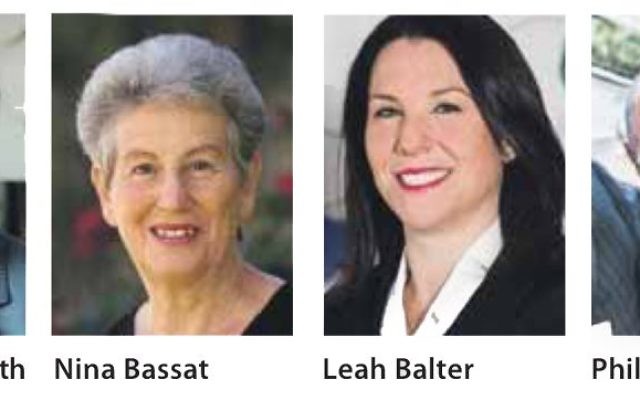Work underway for Melbourne JCA
BEHIND closed doors four community-minded people have been quietly working on a Melbourne version of the JCA.
Joshua Levi
BEHIND closed doors four community-minded people have been quietly working on a Melbourne version of the JCA.
The AJN can reveal that former Executive Council of Australian Jewry (ECAJ) president Nina Bassat, Swinburne University chancellor and former Bialik president Graham Goldsmith, Erdi Group executive director Philip Zajac and former McKinsey consultant Leah Balter have been working to try and see if a JCA-style organisation would be accepted in Melbourne.
The group will meet with 20 of the key organisations over the next two months to undertake qualitative surveys and then prepare a report on the views of those organisations, and the key benefits and challenges of implementing a JCA in Melbourne.
Balter, who conducted a quantitative survey about nine years ago on behalf of a group of major donors, said it’s time to revisit the issue.
“Last time we asked organisations how much money they raised and we added it up and worked out that Victoria fundraises more than NSW, but the survey didn’t focus on the need for a long-term community strategy,” Balter said.
“We didn’t consider last time that while we might take a hit in terms of fundraising dollars, there might be benefits including long-term strategic planning.”
She said that this time, the group is going to determine who is interested and what some of the stumbling blocks might be.
“We might then be able to design a JCA that isn’t exactly the same as Sydney, but meets the needs of the Victorian Jewish community.”
Balter said the initial JCA might include a small number of organisations, for example all of the schools, who might benefit from strategic planning together.
Bassat said that when she was ECAJ president she realised that some aspects of the community were better in Sydney.
“We need planning and fundraising together because there is not much point planning unless you have the funds to put it in place,” Bassat said.
“I have a feeling that the timing has never been quite as right as it is now because there are a number of organisations that are struggling and a number that have realised that we need better planning.
“I know there are some people that will doubt it, but this is viable.”


comments